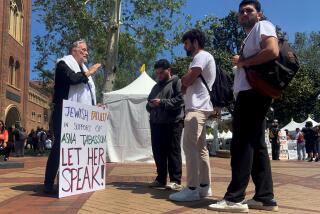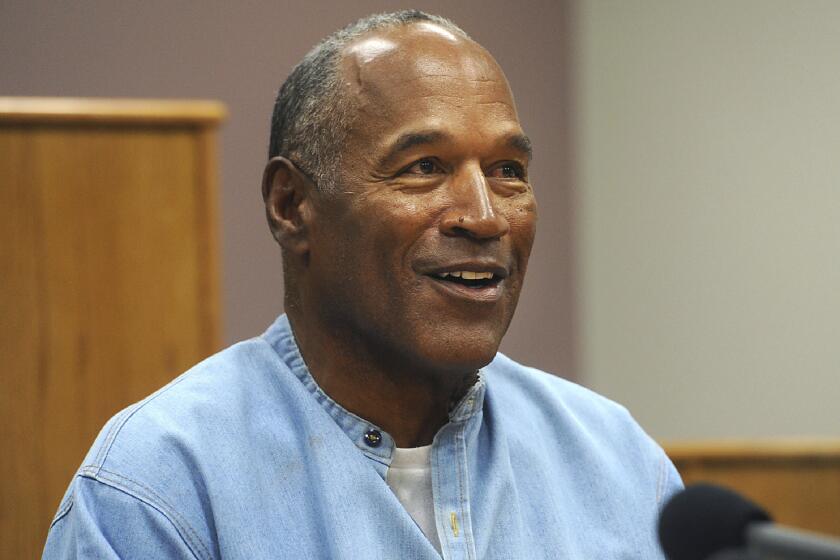Police Arrest 12 in Shutdown of ‘Justiceville’
Los Angeles police arrested 12 homeless persons today in an early morning operation to shut down “Justiceville,” the Skid Row shantytown settlement for the homeless.
The owner of the site at 6th Street and Gladys Avenue, under pressure from the city attorney and the county Department of Health Services to correct health code violations, early this morning told about 60 people who had made the site their home to leave.
Most left, but when a dozen refused, they were arrested by the police without resistance. They are expected to be booked on charges of trespassing, said Capt. Bill Wedgeworth of the LAPD Central Division.
But the scores who gathered to watch, at least half of them reporters and photographers, witnessed a mix of suffering and theatrics as “Justiceville” residents stuffed what few belongings they had into paper bags and old suitcases.
One woman, 61-year-old Ellen Oliver, bleary-eyed, stood quietly, with her three dogs and a cat as police ushered residents out of the settlement.
‘Don’t Know Where I’ll Go’
“It was home. I knew where I was going to sleep every night. Now I don’t know where I’ll go.”
Others shouted and screamed as cameras rolled, and one man said that he thought that “somebody ought to get us a condominium.”
The settlement, a combination of cardboard and plywood makeshift houses, sprang up several months ago soon after the homeless erected “Tent City” across the street from City Hall, calling attention to the problems of those who cannot find or afford shelter.
In spite of criticism by the homeless of the city and county’s handling of the homeless problem, Mayor Tom Bradley said, the city “made every effort” to help the homeless relocate. About 14 residents of “Justiceville” were given temporary housing Friday morning at the Weingart Center downtown, a private nonprofit emergency center.
The “Justiceville” site, which is owned by a private firm, Orient Investment Co., had attracted both the desperately poor and some who were involved in drug activity, residents said.
More to Read
Start your day right
Sign up for Essential California for news, features and recommendations from the L.A. Times and beyond in your inbox six days a week.
You may occasionally receive promotional content from the Los Angeles Times.






